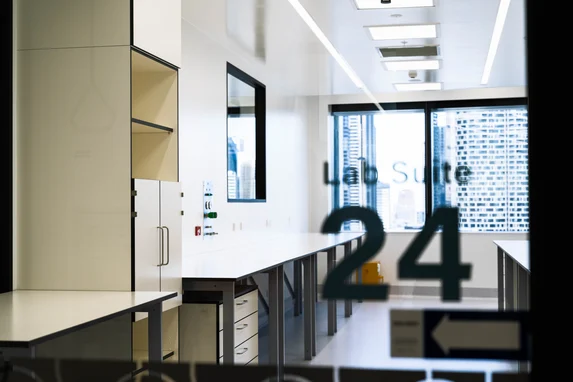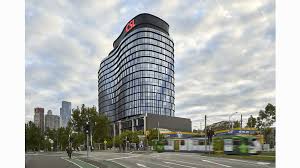In this article…
Jumar Bioincubator has just opened its doors to budding young biotech companies in an effort to support them through the early stages of business. It is a joint venture between CSL, WEHI and Unimelb, with backing from Breakthrough Victoria and Cicada Innovations. It is based in the heart of the Melbourne biotechnology precinct, sharing its headquarters with CSL, Australia’s primary biopharma champion. Just like how a new bioincubator is introduced to Melbourne, this article will introduce you all to the concept of a bioincubator and why they are so vital to the industry.

What is a bioincubator?
For a start, they have nothing to do with eggs! Unless the companies that reside within the building have some sort of egg-based business, of course. In reality, a bioincubator generally serves as a collaborative space that early stage biotech companies use as a home base to operate in.
Companies like Jumar provide essential tools to guide biotech startups through their early proceedings. For example, a bioincubator may link founders of a startup with more experienced players in their field, or to investors who may be interested in the company. A lot of what a bioincubator does surrounds nurturing of biotech startups in a time where they will need it the most. On top of soft resources outlined above, Jumar offers high grade laboratories for the science side of these biotech startups.

The location factor
Melbourne has a constantly evolving biotech hub surrounding the Elizabeth Street roundabout. Peter Mac, Unimelb, CSL’s HQ and other organisations all reside within a few kilometres of one another, allowing high exchange of knowledge without the barrier of distance. By setting up in this specialty area, Jumar find itself in arguably Australia’s most enviable location. They have the ability to attract health-focused startups not only through the founding organisations, but all surrounding institutions.

Other biotech innovation centres in Melbourne, namely Melbourne Accelerator Program (MAP) and Biocurate, are both based in Parkville along Swanston Street, on the other side of Melbourne University. They serve a similar purpose, in a similar area, and are both mainly related to Melbourne and Monash University. The difference with Jumar seems to be that the backing comes not only from the public sector, but the private sector, too.
The major players: who benefits?
I have broken down the major shareholders in this project into three categories: the architects, the startups and the public.
The architects

CSL
The architects of this operation have all come together to manufacture the most exciting development in the Melbourne biotech hub this year. This would not have been possible without CSL opening its doors to the new headquarters in August last year, which added major private sector contribution to the hub. As Jumar is based in these headquarters, CSL probably benefits by gaining an insider scope into the operations of these startups and possibly acquire the technology down the line.
WEHI
WEHI, a medical research company based along Royal Parade, have had a major input into the development of Jumar. Their interest lies in bringing discoveries made at their facility to commercial production. WEHI can consolidate revenue from patentable biotechnology where their resources were required in its discovery.
The University of Melbourne
The University has a similar role in medical research to WEHI. Scientific discoveries that take place there are bound to IP sharing rules per the University guidelines. Unimelb has a vested interest in seeing profit realised from technology discovered at the University, as they get a cut of it.
Breakthrough Victoria
Supported by the Victorian Government’s Breakthrough Victoria Fund, Breakthrough Victoria are an independently operated investment management fund. As such, they use public funding to make their own investment decisions. Of the $2 billion in the fund, $25 million has been invested into Jumar, with about $40 million coming from other backers.
Cicada Innovations
Cicada Innovations have the task of operating and managing Jumar. Their experience as a global deep tech innovator comes with decades connections and experience. Companies that inhabit the bioincubator will need these resources to grow their company in terms of network and other business operations.
The startups
There are currently 12 startups residing at Jumar. I have picked two from this bunch that sum up the role of a bioincubator for a startup.
Arovella Therapeutics
Arovella are a clinical stage company producing molecules to treat blood cancers. Jumar provides them with the necessary office and lab space to further development of both their lead and secondary products.
Symex Labs

Designers of the trailblazing ‘lab-on-a-chip’ technology, Symex Labs find residence at Jumar. The technology in question aims to provide the public with DIY hormone monitoring tools. According to the bioincubator, they are “thrilled to have the Symex Labs team conducting their innovative experiments right here at Jumar”. In this, Jumar are providing not only the tools and equipment for Symex, but also exposure to a science-oriented audience.
The public
This one relates more to how biotech in general impacts the lives of people positively. The aforementioned startups are commercially motivated to create new treatments that, by nature, add to modern innovations in medicine. As such, spaces such as Jumar that facilitate biotech startups benefit the public by providing the necessary tools to succeed in the industry.
Summing it all up
The journey has really only just begun for Jumar and its stakeholders. In the future, we will hopefully see the companies that reside within reach commercial success to positively impact the lives of the public. Spaces such as Jumar are integral for a successful biotech industry, and strengthen the possibility for Melbourne to be a key player in the global biotechnology market.
If you’re interested in other biotech related stuff, check out my most recent article on cultivated meat!
